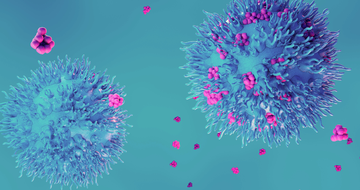HOPA has had an eye on oncology drug shortages for nearly a decade. As these drug shortages have begun to culminate into a national crisis, members of HOPA's advocacy and policy teams have continued to contribute thought pieces, including this Issues Brief. Originally approved by the HOPA Health Policy Committee on August 22, 2014, this brief was updated in January of 2022.
Drug shortages present serious challenges for HOPA members in their efforts to provide optimal care to individuals affected by cancer. Shortages of drugs that are essential for the treatment and care of individuals with cancer result in compromises to patient care and, ultimately, outcomes. Drug shortages affect care in all treatment settings, including clinics, hospitals, and the home.Impact of Drug Shortages on Individuals with Cancer
The impact of a drug shortage on individuals with cancer and their families can be severe
Shortages of medications that do not have an equivalent therapeutic alternative are the most problematic.
- Individuals with cancers that are curable may not receive the most effective treatment.
- For many people, cancer isa chronic disease, making the control of cancer as important as the cure of cancer. When shortages of medications that are used to control and manage cancer in those individuals with non-curable cancer occur, the ability to control the cancer may be compromised.
- Alternative drugs substituted for drugs that are unavailable due to shortages may be associated with increased toxicities, and/or increased costs for patients and the healthcare system.
Patient Safety at Risk
Drug shortages ultimately compromise patient safety. While practitioners take every precaution possible to provide safe and efficacious care, drug shortages increase the potential for errors and patient harm.
- The use of grey markets as an alternative to obtain medications that are on shortage present concerns due to an increase in the cost of the drugs and the risk of compromised drug integrity.
- When a drug is obtained through unofficial or unsanctioned sources, safety and quality issues arise. Drugs have a limited shelf life and can become ineffective if used beyond the expiration date. Alteration of drug products (e.g., dilution of drug resulting in drug not being consistent with labeling) has also been reported when drugs are obtained from non-traditional sources.
- Members of the healthcare team may not be as familiar with alternative drugs used during drug shortages.
- New health information technologies are constantly being implemented to improve patient safety, yet it can be difficult to quickly modify these technologies when practice changes occur due to drug shortages, which may result in an increased chance of treatment errors and patient harm.
Treatment Changes
Cancer treatments often depend on a strict timeline for the best results. However, strategies such as decreasing doses or increasing the interval between scheduled treatments are sometimes implemented in an attempt to “save inventory” of drugs that are not consistently available due to shortages.
- Individuals with cancer, whether curable or not, may not receive the treatment that has been shown to be the most effective to manage their cancer.
- Inappropriate modifications of dose and/or dose treatments have been shown to decrease the effectiveness of treatment for some cancers.
- Quality of life and tolerability of treatment may be compromised when drugs that are used to prevent and manage complications of cancer or cancer treatment are in shortage.
Medical Advances Stalled
Drug shortages impact research efforts necessary to find better treatment(s) for individuals affected by cancer.
- Clinical trials may be suspended when drugs necessary for clinical research treatments are unavailable due to shortages.
- New clinical trials may not be startedif drugs are unavailable due to shortages.
- Data analysis for clinical trials that were affected by drug shortages may be compromised due to disruption/changes in the treatment regimens.
Burden on Healthcare Resources
Drug shortages stress resources of the healthcare system and the healthcare team, which ultimately impacts individuals with cancer and their caregivers.
- The time and resources spent managing drug shortages by providers and healthcare teams take resources away from other important patient care activities.
- To ensure continued care during a drug shortage, patients are sometimes forced to change physicians, practices, and location of treatment.
- Costs to healthcare systems can soar if providers are forced to purchase drugs in shortage through the grey market.
Recommendations to Avoid and Manage Future Drug Shortages
Drug shortages are multi-faceted. Effectively tackling drug shortages will involve the collaborative efforts of drug manufacturers, healthcare professionals, patient advocacy organizations, and government agencies. HOPA makes the following recommendations to ensure that shortages do not continue to disrupt care for individuals affected by cancer:
- Ensure timely notification and complete transparency on all issues surrounding drug shortages, including, but not limited to, information regarding reported causes of drug shortages, anticipated duration of shortages, and consistency of supply during and after resolution of shortages;
- Enhance formal and timely communication among all healthcare professionals, patient advocacy organizations, manufacturers, and the FDA to support product distribution and maintain adequate supplies;
- Enable FDA to better assist with distribution options for products in short supply in all treatment settings;
- Develop process to allow FDA to reallocate products in short supply from a clinical trial into general use instead of destroying the medication;
- Support process to assess and mitigate risks in global supply chain for critical raw materials supplied by other countries;
- Incentivize manufacturing redundancies for drugs that are deemed vulnerable to shortages;
- Consider economic incentives to manufacturers to increase capacity for sterile injectable drugs to assure a consistent oncology drug supply;
- Require manufacturers to maintain effective contingency plans for unplanned supply disruptions;
- Require confidential notification to the FDA when a single Active Pharmaceutical Ingredient (API) or manufacturing source for a particular drug exists;
- Develop efficient and equitable access programs when drugs are in short supply;
- Enhance electronic health record processes and guidelines to incorporate seamless and safe switching of products in short supply;
- Maintain adequate reimbursement for the use of brand name drug therapies or alternative therapies when the existing drug is in short supply; and
- Develop guidelines for evidence-based prioritization of use of critical products as well as use of alternatives for drugs that are used in the treatment of cancer and ensure widespread availability to practitioners in all treatment settings.
Conclusion
Overall, new drug shortages have decreased in recent years, yet chemotherapy drug shortages have increased and remain a threat to public health. Recent legislation passed as a result of the COVID-19 pandemic, such as the CARES Act in 2020, includes important strategies to decrease shortages, though additional strategies are needed. With proper oversight and effective communication between healthcare professionals, manufacturers, patient advocacy organizations, and government agencies, drug shortages can be managed in a safer, more transparent fashion, or avoided all together. HOPA and its members feel strongly that individuals with cancer should not shoulder the burden of drug shortages in addition to the physical and emotional stresses of cancer and cancer treatment


